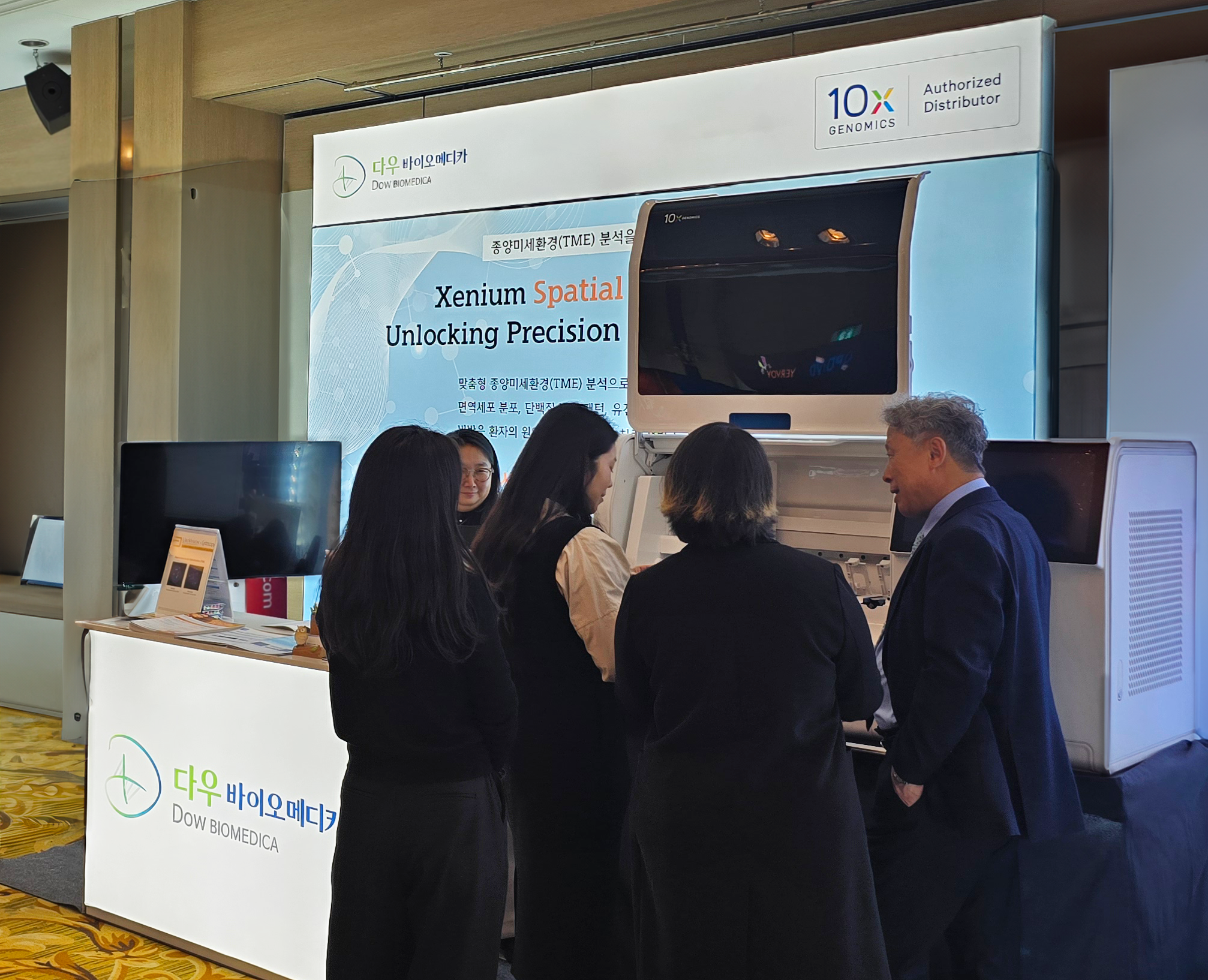Bladder Cancer Prone to Recurrence Can Now Be Monitored Through Genetic Testing
- 등록일 : 2025-05-20
유전자 검사로 방광암 재발을 조기에 발견할 수 있는 새로운 진단법이 소개됐다. 방광암은 치료 후에도 환자의 70%에서 재발을 경험한다. 이런 특성으로 치료 후에도 지속적인 모니터링으로 방광암 재발을 조기에 정확하게 감지하는 것이 임상적으로 중요하다.
체외진단기업 다우바이오메디카는 2025 대한병리학회 춘계학술대회에서 방광암 재발 감시를 위한 새로운 감시 솔루션인 분자진단 검사 UroVysion을 소개했다. 현재 대부분의 방광암 재발 감시는 방광경(cystoscopy)에 의존한다. 그런데 이런 방식은 시술 시 통증이 크고 고령 환자나 반복 시술을 받은 환자에게는 요도 협착 등으로 인해 검사 자체가 어려운 경우가 많다. 보조적으로 활용되는 소변 세포검사 또한 진단 민감도가 낮다. 실제 임상에서는 재발 여부를 판단하는 데 한계가 있다.
다우바이오메디카의 UroVysion 검사는 소변에서 탈락된 세포 중 염색체의 이상 유무를 FISH 기술을 통해 검출한다. 임상 연구결과 민감도 92%, 음성예측도가 94.1%로 보고됐다. 검사 결과가 음성으로 나오면 실제로 암이 없을 가능성이 94% 이상이라는 뜻으로, 방광암 감시에서 신뢰할 수 있는 결과를 제공하는 강점이 있다.
회사 관계자는 “기존 방광경의 시야 제한, 통증 부담, 반복 시행의 어려움 등을 보완할 수 있는 분자진단 검사로, 재발 감시의 새로운 표준이 될 수 있을 것”이라며 “향후 건강검진 항목으로의 확대와 더불어 의료보험 급여 적용 가능성을 모색하고 있다”고 말했다.
특히 방광 내부 염증이 심해 방광경 검사 결과 신뢰도가 낮거나 요도 협착 등 해부학적 문제로 방광경 검사가 어려울 때 활용도가 높을 것으로 기대한다. 다우바이오메디카는 이번 대한병리학회 전시를 계기로 임상 전문가들과 긴밀한 협력을 통해 UroVysion의 활용 저변을 넓히고, 방광암 환자들의 삶의 질 개선에 기여할 계획이다.
출처 : 헬스중앙(https://jhealthmedia.joins.com)

Genetic Test Enables Early Detection of Recurrent Bladder Cancer
A new molecular diagnostic test that detects recurrent bladder cancer through a non-invasive urine sample has been introduced by South Korean diagnostics company Dow Biomedica. The company showcased UroVysion, a genetic testing-based surveillance solution, at the 2025 Spring Meeting of the Korean Society of Pathologists.
Bladder cancer is known for its high recurrence rate, with up to 70% of patients experiencing a relapse after treatment. Continuous and accurate post-treatment monitoring is therefore crucial. Currently, most recurrence surveillance relies on cystoscopy, a procedure that can be painful and difficult to perform repeatedly, especially in elderly patients or those with urethral stricture. Conventional urine cytology also suffers from low sensitivity, limiting its clinical utility.
UroVysion addresses these limitations by detecting chromosomal abnormalities in exfoliated cells from urine using FISH (Fluorescence In Situ Hybridization) technology. Clinical studies have reported a sensitivity of 92% and a negative predictive value of 94.1%, indicating high reliability—especially when test results are negative.
“This test offers a molecular diagnostic alternative to overcome the limitations of cystoscopy, including discomfort and procedural difficulties,” said a company representative. “We see strong potential for UroVysion to become the new standard in bladder cancer surveillance and are exploring its inclusion in health checkup programs and reimbursement coverage.”
The test is expected to be particularly useful in cases where cystoscopy is challenging due to severe inflammation or anatomical barriers. Dow Biomedica plans to expand the use of UroVysion through close collaboration with clinical experts, contributing to improved quality of life for bladder cancer patients.
Source: JHealthMedia (https://jhealthmedia.joins.com)


